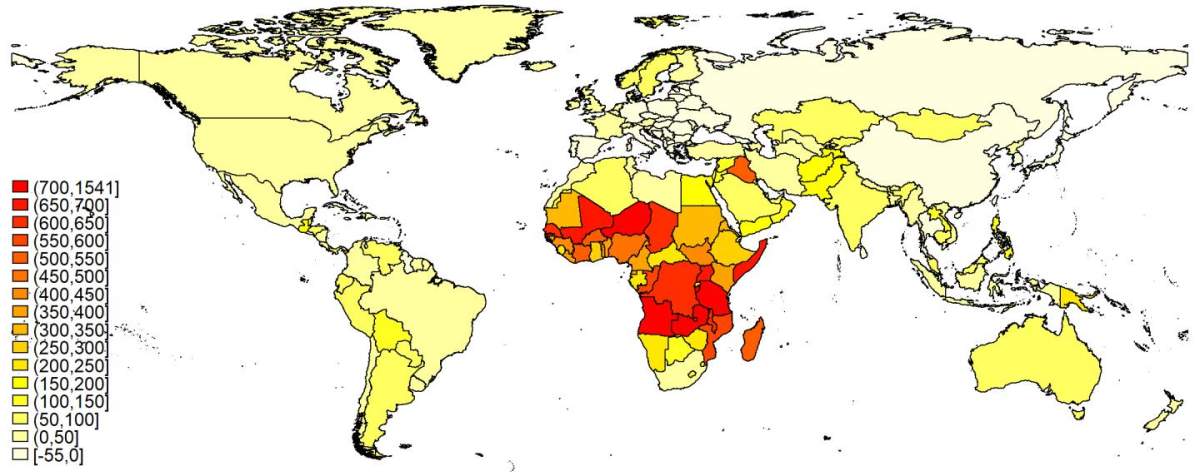The global demand for food could skyrocket by almost 80 per cent due to an increase in the size of both the human body and human population, researchers say in a newly-published study.

Using a scenario that benchmarked the increasing body mass index (BMI) levels of Mexico and the increasing height of the Netherlands, the study, published by University of Göttingen professor Stephan Klasen and doctoral student Lutz Depenbusch, mapped the increase of calorie intake between 2010 and 2100.
“The developments in these countries are very pronounced,” Depenbusch said in a press release. “But they do represent a realistic scenario.”
A person’s BMI refers to an evaluation of their mass and height, and is commonly used to evaluate whether a person is overweight or underweight for their specific size.
According to the study, should current BMI and height levels remain the same, the global calorie requirement would still increase 61.05 per cent by 2100 due to population growth.
Factoring in their scenario, the two researchers found that 18.73 per cent could be added on top — bringing the total to 79.78 per cent.
The increase, which would particularly affect Sub-Saharan African countries, would amount to the “combined calorie requirements of India and Nigeria” in 2010.

Get daily National news
Depenbusch and Klasen both worry that even a decrease in BMI wouldn’t be able to control the demand for food, should food production not meet the increased need.

They say that the differences would be exaggerated between the rich and poor, as nutritional food prices would hike up from increased demand.
“This would lead to increased consumption of cheap food, often rich in calories but poor in nutrients,” said Depenbusch.
“As a result, body weight among the poor would continue to rise alongside malnutrition and poorer health outcomes.”
The study calls for policies that “increase food access” in economically weak regions, which would eventually shift diets away from “energy dense” foods and reduce the increase in required calories of those in obese or overweight conditions.
“Supplying insufficient calories would not solve the problem but cause malnutrition in populations with weak access to food,” the study read.
“As malnutrition is not reducing but promoting rises in BMI levels, this might even aggravate the situation.
The study, titled “The effect of bigger human bodies on the future global calorie requirements,” is published in the journal PLOS ONE.









Comments
Want to discuss? Please read our Commenting Policy first.